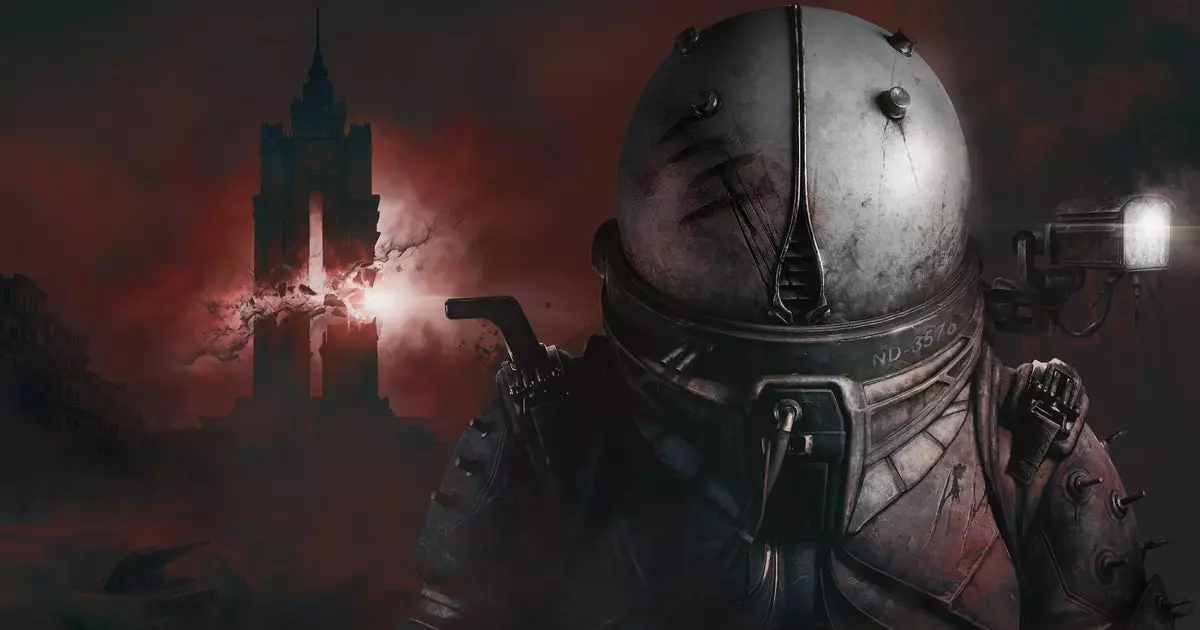The gaming landscape is rife with remakes and sequels, yet few manage to craft a narrative as intriguing as that offered by *Cronos: The New Dawn*. Developed by Bloober Team, renowned for their work on the acclaimed *Silent Hill 2* remake, this title embarks on an ambitious trajectory that melds sci-fi horror with a rich cultural tapestry. Boasting a unique premise where players navigate both dystopian futures and the eerie charm of 1980s Poland, *Cronos* invites gamers to ponder not only on survival but on the very essence of humanity amidst chaos.
The Setting: A Broken World
Set in a world ravaged by an enigmatic cataclysm known as “The Change,” *Cronos* presents an Earth transformed into a spectral expanse peppered with grotesque remnants of civilization. The game’s environments—grimy and hauntingly beautiful—draw inspiration from Bloober’s earlier work, *The Medium*, but take a sharp turn into the grotesque with its vision of a future populated by monstrous entities. In this altered reality, humanity finds refuge in peculiar hexagonal pods, resonating with themes of isolation and survival. This design choice not only enhances the atmospheric tension but also serves as a metaphor for how technology might lead to dehumanization in struggle-ridden times.
The Gameplay: Mechanics and Exploration
What sets *Cronos: The New Dawn* apart from its predecessors is its deep dive into combat mechanics combined with puzzle-solving elements. Gamers step into the shoes of a “Traveller” affiliated with a group dubbed “the Collective.” Armed with an unconventional “Harvester” gauntlet, players extract the essences of people from the 1980s Poland, where The Change has yet to take full effect. This time-bending mechanic introduces a compelling philosophical undertone: the question of what it means to save someone and the ramifications of playing with time. Combat becomes a visceral experience, with an array of weaponry at your disposal, from formidable hand cannons to implosive devices. This represents a significant departure from the slow-paced, anxious melee of previous titles, marking *Cronos* as Bloober’s most combative entry yet.
Cultural Context: A Reflection of Poland’s Horror
One cannot overlook Bloober Team’s dedication to integrating their cultural heritage into the gaming experience. Their exploration of Poland through various temporal lenses not only enhances the narrative depth but also invites players to engage with the historical and psychological implications of their homeland’s past. Much like how *Observer* unfolded within the shadowy corridors of a Kraków apartment block, *Cronos* promises to intertwine the past with the present, allowing players to traverse familiar hauntings through a new perspective. This cultural introspection elevates the horror genre by rooting it in genuine experience, making it resonate on a far deeper level than merely providing jump scares.
Anticipation and Community Buzz
As *Cronos: The New Dawn* approaches its launch, anticipation among the gaming community is palpable. The blend of time travel, horror, and action has captured the interest of gamers eager for innovation within the genre. However, it’s crucial to approach with tempered expectations; while Bloober Team has a reputation for crafting atmospheric experiences, the execution of such a multifaceted concept will determine its success. Will the narrative complexities and gameplay mechanics synergize, or will they fall victim to the pitfalls that often plague ambitious indie projects?
The trailer released last October showcases the chilling aesthetics and promises thrilling gameplay, but ultimately, the depth of the story and character development will define *Cronos*. Players will be watching closely to see if Bloober can masterfully weave together the threads of horror, nostalgia, and cultural reflection in a way that resonates long after the game is over.
In this digital age, where narratives often meander towards the generic, *Cronos: The New Dawn* stands as a beacon of potential—an invitation to question through the lens of terror while simultaneously reflecting on the human condition through a culturally rich narrative. As launch day draws near, the excitement is not merely about playing a game; it represents stepping into a thought-provoking journey that challenges both perception and reality.

